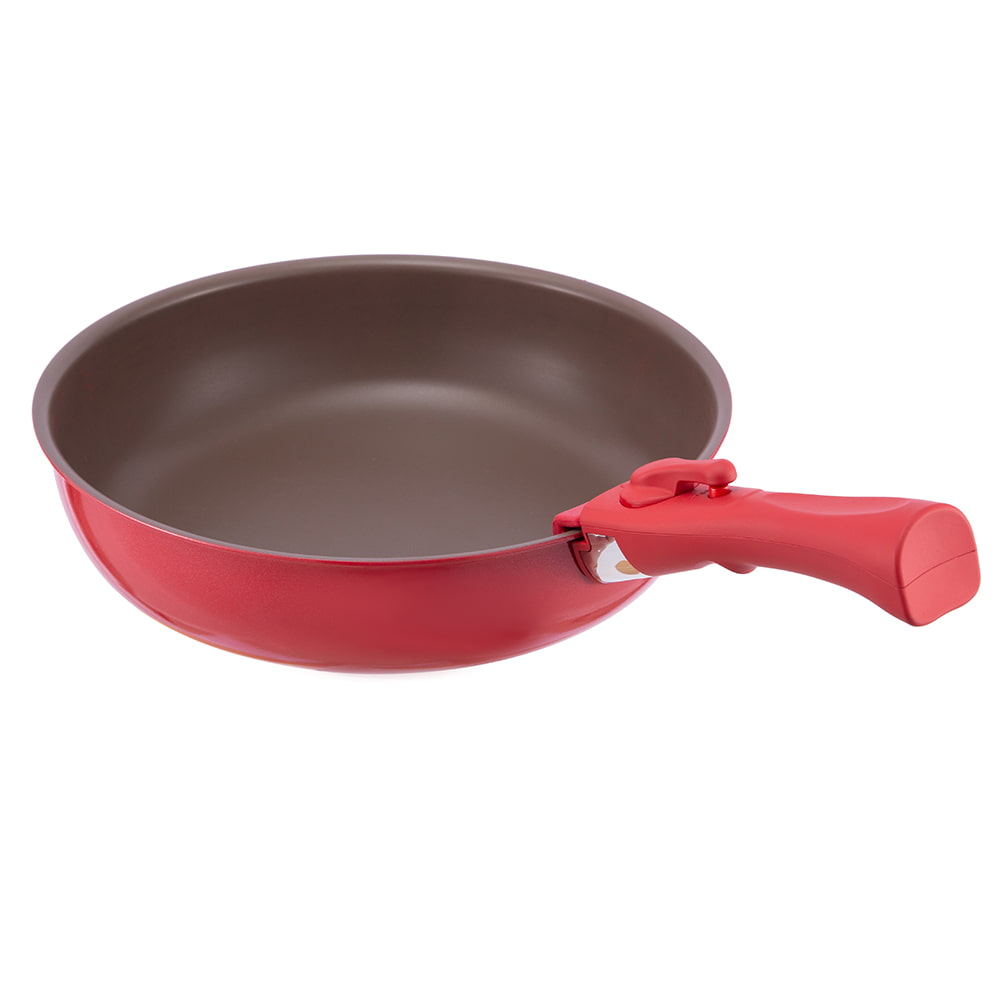Hard anodizing, as an advanced metal surface treatment technology, is based on the principle of forming a dense aluminum oxide film on the surface of aluminum or aluminum alloy through electrochemical action. This film, like a silent guardian, silently guards the intrinsic quality and external beauty of the cookware with its excellent chemical stability and physical strength. The hard anodizing process not only requires precise control of electrolysis conditions, such as current density, electrolyte composition, temperature and time, but also requires strict pretreatment of raw materials, including surface cleaning, degreasing, pickling, etc., to ensure the uniformity and density of the oxide film. It is this series of complex and delicate processes that give hard anodized cookware unparalleled durability and safety.
During the cooking process, direct contact between food and cookware is inevitable. However, the acid, alkali, salt and other ingredients in the food, as well as the various chemical reactions produced during the cooking process, may cause corrosion to the surface of the cookware, thereby affecting the purity and safety of the food. The aluminum oxide film on the surface of hard anodized cookware is a solution designed to address this challenge.
The aluminum oxide film, with its excellent chemical stability, can resist the erosion of various corrosive substances. Whether it is strong acid, strong alkali, or high concentration of salt, the aluminum oxide film can handle it calmly to ensure that the surface of the cookware is not damaged. This feature not only extends the service life of the cookware, but more importantly, it effectively prevents the contamination of food by corrosive substances during the cooking process, ensuring the purity and safety of the food.
The aluminum oxide film also has good heat resistance and insulation. During the cooking process, even in the face of high temperatures, the aluminum oxide film can remain stable, preventing heat from being transferred to contact parts such as handles too quickly, ensuring the safety of the cook. At the same time, its insulation performance also avoids the risk of electric shock caused by unexpected situations such as electrical failures, adding a sense of peace of mind to the cooking process.
Hard anodized cookware has not only won the favor of consumers with its excellent durability and safety, but also become a powerful assistant for cooks with its excellent cooking experience.
The wear resistance of the aluminum oxide film makes the surface of the cookware smoother, reduces the friction between the ingredients and the bottom of the pot, makes it less likely for the ingredients to stick to the pot during cooking, and maintains the original flavor of the ingredients. At the same time, the good thermal conductivity of the aluminum oxide film enables the cookware to transfer heat quickly and evenly, whether it is high-temperature stir-frying or low-temperature slow stewing, it can easily cope with it, ensuring the dual improvement of cooking efficiency and quality.
The cleaning and maintenance of hard anodized cookware is also extremely convenient. The chemical stability of the aluminum oxide film makes the cookware less likely to be stained. Even in the face of stubborn oil stains or food residues, it only takes a simple cleaning to restore it to its original state. This not only saves the cooker's time and energy, but also avoids damage to the cookware caused by improper cleaning, and extends the service life of the cookware.
While pursuing cooking quality, hard anodized cookware also actively undertakes the mission of environmental protection and sustainability. On the one hand, the wear resistance and corrosion resistance of the aluminum oxide film reduce the frequency of replacement of cookware, thereby reducing resource consumption and waste emissions. On the other hand, the hard anodizing process itself also meets environmental protection requirements, and its electrolyte can be recycled, reducing production costs and environmental pollution.
The widespread use of hard anodized cookware has also promoted the innovation and upgrading of cooking methods. While pursuing efficiency and convenience, more attention is paid to the purity and safety of food, which has promoted the popularization and practice of the concept of green cooking.
 No. 1, Jingwei Road, Yangcheng Lake Town, Xiangcheng District, Suzhou City, China
No. 1, Jingwei Road, Yangcheng Lake Town, Xiangcheng District, Suzhou City, China [email protected]
[email protected] +86-13913553688
+86-13913553688
 search
search
 中文简体
中文简体 English
English русский
русский Français
Français Español
Español 日本語
日本語






-4.jpg)
-1.jpg)

-3.jpg)
-5.jpg)

-3.jpg)
-9.jpg)
-3.jpg)
-14.jpg)

